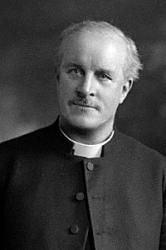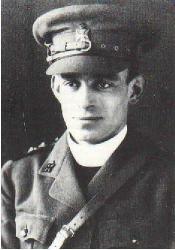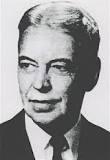Planning worship?
Check out our sister site, ZeteoSearch.org,
for 20+ additional resources related to your search.
- |
User Links
Person Results
James Turle
1802 - 1882 Meter: 8.6.8.6.8.6 Composer of "BETHSAIDA (Turle)" TURLE, JAMES (1802–1882), organist and composer, son of James Turle, an amateur 'cello-player, was born at Taunton, Somerset, on 5 March 1802. From July 1810 to December 1813 he was a chorister at Wells Cathedral under Dodd Perkins, the organist. At the age of eleven he came to London, and was articled to John Jeremiah Goss, but he was largely self-taught. He had an excellent voice and frequently sang in public. John Goss [q. v.], his master's nephew, was his fellow student, and thus the future organists of St. Paul's Cathedral and Westminster Abbey were pupils together. Turle was organist of Christ Church, Surrey (Blackfriars Road), 1819–1829, and of St. James's, Bermondsey, 1829–31. His connection with Westminster Abbey began in 1817, when he was only fifteen. He was at first pupil of and assistant to G. E. Williams, and subsequently deputy to Thomas Greatorex [q. v.], Williams's successor as organist of the abbey. On the death of Greatorex on 18 July 1831, Turle was appointed organist and master of the choristers, an office which he held for a period of fifty-one years. Turle played at several of the great musical festivals, e.g. Birmingham and Norwich, under Mendelssohn and Spohr, but all his interests were centred in Westminster Abbey. His playing at the Handel festival in 1834 attracted special attention. At his own request the dean and chapter relieved him of the active duties of his post on 26 Sept. 1875, when his service in D was sung, and Dr. (now Professor Sir John Frederick) Bridge, the present organist, became permanent deputy-organist. Turle continued to hold the titular appointment till his death, which took place at his house in the Cloisters on 28 June 1882. The dean offered a burial-place within the precincts of the abbey, but he was interred by his own express wish beside his wife in Norwood cemetery. A memorial window, in which are portraits of Turle and his wife, was placed in the north aisle of the abbey by one of his sons, and a memorial tablet has been affixed to the wall of the west cloister. Turle married, in 1823, Mary, daughter of Andrew Honey, of the exchequer office. She died in 1869, leaving nine children. Henry Frederic Turle [q. v.] was his fourth son. His younger brother Robert was for many years organist of Armagh Cathedral.
Turle was an able organist of the old school, which treated the organ as essentially a legato instrument. He favoured full ‘rolling’ chords, which had a remarkable effect on the vast reverberating space of the abbey. He had a large hand, and his ‘peculiar grip’ of the instrument was a noticeable feature of his playing. His accompaniments were largely traditional of all that was best in his distinguished predecessors, and he greatly excelled in his extemporaneous introductions to the anthems. Like Goss, he possessed great facility in reading from a ‘figured bass.’ Of the many choristers who passed through his hands, one of the most distinguished is Mr. Edward Lloyd, the eminent tenor singer.
His compositions include services, anthems, chants, and hymn-tunes. Several glees remain in manuscript. In conjunction with Professor Edward Taylor [q. v.] he edited ‘The People's Music Book’ (1844), and ‘Psalms and Hymns’ (S. P. C. K. 1862). His hymn-tunes were collected by his daughter, Miss S. A. Turle, and published in one volume (1885). One of these, ‘Westminster,’ formerly named ‘Birmingham,’ has become widely known, and is very characteristic of its composer.
--en.wikisource.org/
James Turle
Louis F. Benson

1855 - 1930 Meter: 8.6.8.6.8.6 Author of "The Sun Is on the Sea and Shore" in Chalice Hymnal Benson, Louis FitzGerald, D.D., was born at Philadelphia, Penn., July 22, 1855, and educated at the University of Penn. He was admitted to the Bar in 1877, and practised until 1884. After a course of theological studies he was ordained by the Presbytery of Philadelphia North, in 1888. His pastorate of the Church of the Redeemer, Germantown, Phila., extended from his ordination in 1888 to 1894, when he resigned and devoted himself to literary and Church work at Philadelphia. He edited the series of Hymnals authorised for use by the General Assembly of the Presbyterian Church in the U.S.A., as follows:—
(1) The Hymnal, Phila., 1895; (2) The Chapel Hymnal, 1898; and (3) The School Hymnal, 1899.
Dr. Benson's hymnological writings are somewhat extensive. They include:—
(1) Hymns and Verses (original and translations), 1897; (2) The Best Church Hymns, 1898; (3) The Best Hymns, 1898; (4) Studies of Familiar Hymns, 1903, &c.
Of his original hymns the following have come into American common use:—
I. In The Hymnal, 1895:—
1. O Christ, Who didst our tasks fulfil. For Schools and Colleges. Written in 1894.
2. O risen Christ, Who from Thy throne. For Installation of a Pastor. Written in 1894.
II. In The School Hymnal, 1899:—
3. A glory lit the wintry sky. Loneliness of Jesus. Written in 1897.
4. Happy town of Salem. Heaven.
5. Now the wintry days are o'er. Easter.
6. O sing a song of Bethlehem. Early Life of Jesus.
7. Open the door to the Saviour. Invitation.
8. Out of the skies, like angel eyes. Lullaby.
9. Who will teach me how to pray? Prayer. In Carey Bonner's Sunday School Hymnary, 1905:—
10. The sun is on the land and sea. Morning.
11. Our wilful hearts have gone astray. Penitence.
12. When I awake from slumber. Morning.
Of the above, Nos. 1-4, 10-12 are from Hymns and Verses, 1897. In the above collection by C. Bonner, Nos. 1, 4, and 6 are also found. Of Dr. Benson's translations from the Latin one only is in common use. See "Plaudite coeli, Rideat aether."
As a hymn writer Dr. Benson is not widely known, mainly through the recent publication of his verse. His hymns deserve attention, and will, no doubt, gain the public ear in due time; whilst his hymnological researches and publications are thorough and praiseworthy.
--John Julian, Dictionary of Hymnology, New Supplement (1907)
Louis F. Benson
Hubert P. Main

1839 - 1925 Meter: 8.6.8.6.8.6 Composer of "CHASTENING" Hubert Platt Main DD USA 1839-1925. Born at Ridgefield, CT, he attended singing school as a teenager. In 1854 he went to New York City and worked as an errand boy in a wallpaper house. The next year he became an errand boy in the Bristow & Morse Piano Company. He was an organist, choir leader, and compiled books of music. He also helped his father edit the “Lute Songbook” by Isaac Woodbury. In 1866 he married Olphelia Louise Degraff, and they had two sons: Lucius, and Hubert. In 1867 he filled a position at William B Bradbury’s publishing house. After Bradbury’s death in 1868 the Bigelow & Main Publishers were formed as its successor. He also worked with his father until his father’s death in 1873. Contributors to their efforts were Fanny Crosby, Ira Sankey, Wilbur Crafts, and others. In addition to publishing, Main wrote 1000+ pieces of music, including part song, singing school songs, Sunday school music, hymns, anthems, etc. He also arranged music and collected music books. He 1891 he sold his collection of over 3500 volumes to the Newberry Library in Chicago, IL, where they were known as the Main Library. Some of his major publications include: “Book of Praise for the Sunday school” (1875), “Little pilgrim songs” (1884), “Hymns of Praise” (`1884), “Gems of song for the Sunday school” (1901), “Quartettes for men’s voices: Sacred & social selections” (1913). In 1922 Hope Publishing Company acquired Bigelow & Main. He was an editor, author, compiler, and composer, as well as publisher. He died in Newark, NJ.
John Perry
Hubert P. Main
Arthur Henry Brown

1830 - 1926 Person Name: Arthur Henry Brown, 1830- Meter: 8.6.8.6.8.6 Composer of "ALLHALLOWS" in The Book of Praise Born: July 24, 1830, Brentwood, Essex, England.
Died: February 15, 1926, Brentwood, Essex, England.
Almost completely self taught, Brown began playing the organ at the age 10. He was organist of the Brentwood Parish Church, Essex (1842-53); St. Edward’s, Romford (1853-58); Brentwood Parish Church (1858-88); St. Peter’s Church, South Weald (from 1889); and Sir Anthony Browne’s School (to 1926). A member of the London Gregorian Association, he helped assemble the Service Book for the annual festival in St. Paul’s Cathedral. He supported the Oxford Movement, and pioneered the restoration of plainchant and Gregorian music in Anglican worship.
Brown edited various publications, including the Altar Hymnal. His other works include settings of the Canticles and the Holy Communion Service, a Children’s Festival Service, anthems, songs, part songs, and over 800 hymn tunes and carols.
Music:
Alleluia! Sing the Triumph
Arthur
Dale Abbey
Fields of Gold Are Glowing
Gerran
Holy Church
Holy Rood
If Angels Sang Our Savior’s Birth
Lammas
O, Sing We a Carol
Purleigh
Redemptor Mundi
Ring On, Ye Joyous Christmas Bells
Saffron Walden
St. Anatolius
St. Austell
St. John Damascene
St. Mabyn
St. Sophronius
Story of the Cross
Sweet Child Divine
--www.hymntime.com/tch
Arthur Henry Brown
Chris Tomlin
b. 1972 Meter: 8.6.8.6.8.6 Author of "Holy Is the Lord" in Baptist Hymnal 2008
Chris Tomlin
Elkanah Kelsay Dare
1782 - 1826 Person Name: Elkanah Kelsay Dare, 1782-1826 Meter: 8.6.8.6.8.6 Composer (melody, attr.) of "MORNING SONG" in The Hymnal 1982 Elkanah Kelsey Dare (1782-1826) was born in New Jersey but moved to Lancaster County, Pennsylvania sometime before 1818. He was a Methodist [sic Presbyterian] minister and very possibly the music editor for John Wyeth’s Repository of Sacred Music, Part Second (1813), a shaped-note collection that includes more than a dozen of his tunes.
Emily Brink
Elkanah Kelsay Dare
Charles Steggall
1826 - 1905 Person Name: Charles Steggal, 1826-1905 Meter: 8.6.8.6.8.6 Composer of "MORWELLHAM" in Trinity Hymnal (Rev. ed.)
Charles Steggall
Carey Bonner

1859 - 1938 Meter: 8.6.8.6.8.6 Composer of "AGATHA (Harding)" Pseudonyms: E. Rawdon Bailey, A. Bryce, Nora C. E. Byrne, R. Y. Harding, Ernest B. Leslie, Frank Ernest Newton, Edwyn Vincent, Hermann von Müller
============
Bonner, Carey, was born in Southwark, Surrey, May 1, 1859. He entered the Baptist ministry after studying at Rawdon College, and held pastorates at Sale, Manchester (1884-95) and Portland, Southampton (1895-1900). Since Sept. 1900 he has been Secretary of the Sunday School Union. He edited words and music of the Garland of New Sunday School Music (issued in parts, 1881 and 1882; complete edition 1886), and the S. S. Hymnary, 1905; and the music of the Christian Endeavour Hymnal, 1896, and the Junior Hymnal, 1906. The longer hymns contributed by him to these works include:—
1. Father, hear Thy children's voices. [S. S. Anniversary.] Written 1905 for a Sunday School Festival at Toledo, Ohio, 1905, as above, No. 362.
2. Gently a voice is pleading. [Come to Jesus.] Written 1902, first published in his Hymns for the Mission, 1902, No. 41; 1905, No. 225.
3. God of little children. [Reverence.] 1882, as above; edition 1886, No. 39. Also in School Hymns, 1891, and Junior Hymnal, 1906.
4. In hope, and love, and steadfast faith. [For Conventions.] Written 1896; first published 1896, as above, No. 369.
5. Now when from one another parting. [Parting Hymn.] Written 1896; 1896, as above, No. 383.
6. We join our hearts and voices. [The Children’s Friend,] 1882, as above; edition 1886, No. 25. Also in School Hymns, 1891, No. 388. See also under "Alleluia dulce carmen," p. 1602, i. [Rev. James Mearns, M.A.]
--John Julian, Dictionary of Hymnology, New Supplement (1907)
=====================
Carey Bonner
Geoffrey Anketel Studdert Kennedy

1883 - 1929 Person Name: G. A. Studdert-Kennedy Meter: 8.6.8.6.8.6 Author of "Awake, Awake to Love and Work" in Rejoice in the Lord Born with Irish heritage to the vicarage in a deprived parish in Leeds. Studdert Kennedy got into Trinity College Dublin at the age of 14, though poverty meant he did not attend until later, graduating with a First Class degree. He was a popular teacher at Calday Grange Grammar School on the Wirral Peninsula before entering the Anglican Ministry; ordained in Worcester Cathedral in 1908 and married in 1914. He worked in deprived parishes: in Rugby, with his Father in Leeds and St Paul's in Worcester. He was known for his forgetfulness, his generosity (he famously gave away the marital bed to an old lady in need recruiting his wife to help carry the mattress) and his plain speaking.
He became a military chaplain (AKA the Padre) in 1915. He spent time with the men waiting to go to the Front speaking with them and offering to write letters home. He carried a large canvas sack of New Testaments and Woodbine Cigarettes to distribute, often staying on the trains up to the front well after they had left the station earning great popularity and the affectionate nickname Woodbine Willie. In 1917 he was awarded the Military Cross for fetching morphine for a first aid post on the Front while under bombardment and repeatedly going to help the wounded or bury the dead in No Man's Land. During the war his first collection of poetry "Rough Rhymes of a Padre" was published and he achieved widespread national fame. His poems did not shy from the horrors of war or questions of faith raised. He was always on the side of the 'ordinary man'.
After the war he continued in parish ministry before taking an itinerant role with the Industrial Christian Fellowship (still operating) where he proclaimed the gospel and fought for the disadvantaged. He died in Liverpool 1929 intending to keep a commitment despite exhaustion. His memorial in Worcester Cathedral says "A poet: a prophet: a passionate seeker after truth: an ardent advocate of Christian fellowship." His hymns are taken from his collections of verse later anthologised in The Unutterable Beauty (1927).
David L. Gent
Geoffrey Anketel Studdert Kennedy
Walter Russell Bowie

1882 - 1969 Meter: 8.6.8.6.8.6 Author of "O Holy City, Seen of John" in The Presbyterian Hymnal Walter Russell Bowie (October 8, 1882–April 23, 1969), was a priest, author, editor, educator, hymn writer, and lecturer in the Episcopal Church (United States).
See also in:
Wikipedia
Walter Russell Bowie


 My Starred Hymns
My Starred Hymns


